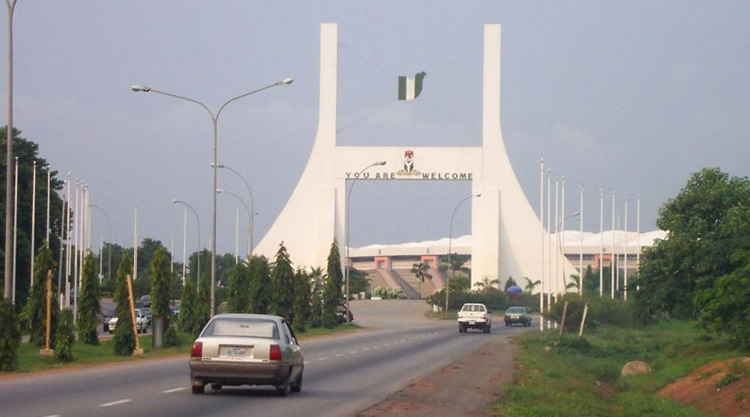The Apo-Karshi Road
By the 1970s, our major cities, including the then Federal Capital, Lagos, were hardly scrupulously planned. Even where they were, such masterplans were distorted and recklessly abused. Consequently, most had assumed the unedifying statuses of sprawling slums and eyesores. Their poor drainage and our equally poor waste management made our cities liable to flooding. Lagos, […]

By the 1970s, our major cities, including the then Federal Capital, Lagos, were hardly scrupulously planned. Even where they were, such masterplans were distorted and recklessly abused. Consequently, most had assumed the unedifying statuses of sprawling slums and eyesores. Their poor drainage and our equally poor waste management made our cities liable to flooding. Lagos, particularly, with its sundry lagoons and limited landmass constrained expansion.
In an attempt to correct these anomalies, the planners of the Federal Capital Territory (FCT), Abuja, borrowed copiously from other custom-made and custom-designed cities such as Washington, Brasilia and Canberra. They discarded the designs foisted by the colonialists where flats came with Boys Quarters for domestic helps who were at their beck and call. They also envisioned that the city would accommodate one million people.
As it has turned out, and thanks to the relocation of the seat of government from Lagos to Abuja, by fiat in 1991, Abuja metropolis alone has grown exponentially into a city accommodating 3,652,000 people, an increase of 5.43% from 2021. Since in our clime government facilitates, in fact, drives other activities, including business, Nigerians have moved to Abuja in droves. Apart from its allure and misperception as some El Dorado by provincial folks, many communities fleeing the menace of terrorists or ethno-religious crises have found succour in Abuja’s relative peace.
The notion of keeping domestic helps at bay, and in the outskirts, has proved dysfunctional and has rendered Abuja a monstrosity. In addition to the menial workers who reside in the outskirts of Kubwa, Gwagwalada and the Nyanya-Masaka axis, nearly all the civil servants reside in the outskirts and satellite towns.
The high cost of rent, occasioned by the inundation of Abuja by Nigerians of all hues, has made the cost of accommodation so prohibitive that even Directing Staff of the Ministries, Departments and Agencies (MDAs) can hardly afford.
As a consequence of the mass exodus to the outskirts, vehicular traffic on the Airport, Kubwa and Abuja-Keffi expressways is heavy. Thanks to the creation of extra lanes over the past 30 years, the traffic gridlocks appear to ease on the Airport and Kubwa expressways.
Unfortunately, and in spite of the dualisation of the Abuja-Keffi Road under the watch of President Olusegun Obasanjo and the recently concluded expansion of the Mogadishu Barracks to Nyanya, traffic snarl on the Abuja-Keffi Road is a daily occurrence.
The gridlock worsens when there is an accident, which is frequent, especially involving trucks and articulated vehicles. When these accidents occur, commuters are stranded for hours on end or they even sleep in the traffic. Others find recourse in trekking.
At other occasions when accidents occur during working hours, commuters hardly make it to their offices or when they report at all, they do so late and exhausted.
The adverse consequences of this gridlock to man-hours, appointments, productivity, health and wear and tear on the vehicles are better left to the imagination.
Thankfully, the Apo-Karshi Road, which has been under construction since 2011 promises to offer a huge relief to this daily gridlock and grind. As at March last year, this critically important alternative to the Abuja-Keffi Road was touted by the authorities to being at the verge of completion and commissioning.
In fact, on an inspection visit of this road, which contract was awarded in parts to Messrs SCC Nigeria and Messrs Kakatar CE Ltd, the Minister of State for the FCT, Dr. Ramatu Tijani Aliyu, was informed in early March last year that the road was nearing completion and that it would “soon” be ready for inauguration and use. A delighted Dr. Aliyu was said by the News Agency of Nigeria (NAN) to have remarked, correctly, that the road would offer a huge relief to commuters if completed.
Regrettably, eight months after this visit, the road is yet to be completed, commissioned and put into use.
While this writer makes a strong and urgent case for the completion of the Apo-Karshi Road, he must also observe that the said road will bring even greater relief and that it will further ease vehicular congestion if it is linked with the road that takes off from Orozo (adjoining Karshi) to Kodape/Auta Balefi (on the Abuja-Keffi Road).
This linkage will seamlessly allow those who are commuting to Keffi from Abuja to by-pass AYA, Nyanya, Mararaba, One-Man-Village, New Karu, New Nyanya and Masaka.
Also, to ease vehicular traffic ingressing the FCT through Abaji, the government should rehabilitate and secure the Abaji-Nasarawa Toto-Nasarawa-Keffi Road. By so doing, commuters who are traveling to Benue, Plateau and the North East States from Lokoja can by-pass the Abaji-Gwagwalada-Airport Road-City Centre-AYA Road.
If the will and commitment are summoned by the Minister of the Federal Capital Territory, Muhammad Musa Bello, the Apo-Karshi Road should be completed and put to use in a matter of two months. After all, we are in the dry season, which favours construction. Besides, the contractors, had in March last year admitted that funds had been released to them.
Additionally, the FCT Minister has been a stickler for restoring Abuja’s Masterplan. He has also been acclaimed for his frugality, integrity and decency. But what are the worth of these uplifting virtues if they cannot be deployed to complete the Apo-Karshi Road, thereby ending the suffering and misery of millions of Nigerians put in his care?
He should please rise to the occasion and bequeath a legacy of compassion and bringing development to our beloved Federal Capital Territory (FCT).
Nick Dazang is a former Director at the Independent National Electoral Commission (INEC).
